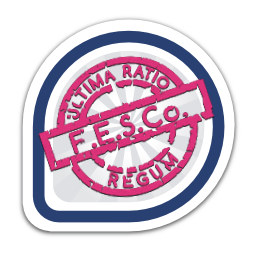This is a part of FESCo Elections interviews series.
Voting is open to all Fedora contributors. The elections started on June 22nd and closes promptly at 23:59 UTC on June 28th.
Please read the responses from candidates and make your choices carefully.
Feel free to ask questions of the candidates here or elsewhere!
Interview with Josh Boyer (jwboyer)
What is your background in Fedora? What have you worked on and what are you doing now?
I’ve used Fedora since it was created, and have participated as a contributor since the Fedora Core 4 time frame. I’ve been a packager and package sponsor. I’ve been on rel-eng, FESCo, the Board, the Workstation WG, and the Council. I am currently one of the Fedora kernel maintainers, and a FESCo and Council member.
Do you think Fedora should be time based or more feature driven distribution? Or compromise?
I think it should be either time based or feature driven, but not some compromise in between. We’ve tried that before and it didn’t work well. Feature driven is clear on the content and what we need to wait for. Time driven make it easier from a user expectation point of view. Right now FESCo is going with time driven and I’d like to see us stick with that for a few releases.
What are the most pressing issues facing Fedora today (from engineering POV)? What should we do about them?
We need to carry forward the moment that Fedora 21 and the Edititions change started. We received a lot of good reviews and feedback on this approach, and I would like to see us continue to make Fedora a more complete and well integrated OS out of the box instead of just a collection of packages.
What are your interests and experience outside of Fedora? What of those things will help you in this role?
I enjoy playing hockey among other things. My outside interests really have nothing to do with technology as I spend most of my day working on that already. I suppose that will help me take time away from complex or stressful issues and be able to approach them with a clear head.
Anything else voters should know?
Please vote. Without active contributors and voters, elections are somewhat pointless.
How can FESCo do a better job communicating with the rest of the Fedora community, or do you feel that FESCo is already doing well here?
FESCo is doing better than it was. I’d like to see a more proactive approach in reaching out to Change owners and making sure they’re available when their Change is being discussed. Beyond that, it really depends on the topic or issue at hand. I think things are going fairly well from a FESCo standpoint.
What can you accomplish as part of FESCo that you couldn’t accomplish as a contributor to Fedora without sitting on FESCo?
I’ve answered this question the same way for a long time, and the answer is “not much.” FESCo is a collection checkpoint for items coming into the OS as a whole, so it is unique in that aspect. Beyond that, there are policy changes to review or create but those are fairly infrequent. Other than items like those, you don’t need to be on FESCo to do most of the various activities in Fedora, and I’d point out that sometimes being on FESCo can actually make you less productive in certain ways because it can take a lot of time.
With the advent of Fedora Council now, what do you see as the significance of FESCO in Fedora project?
I think FESCo has been and still remains the primary Engineering/Technical committee in Fedora. The Council will lean on them heavily to understand technical issues and recommend proper solutions or approaches.
Do you think FESCo can help with the reduction of the backlog of >400 packages awaiting review?
No. FESCo has no solution to that problem, nor do they have resources they can direct at it. It will take people stepping up to do the reviews. There has been discussion on automating via tooling, and that is something that might help but it isn’t something FESCo is actively working on. It still requires interested people to do the work.





